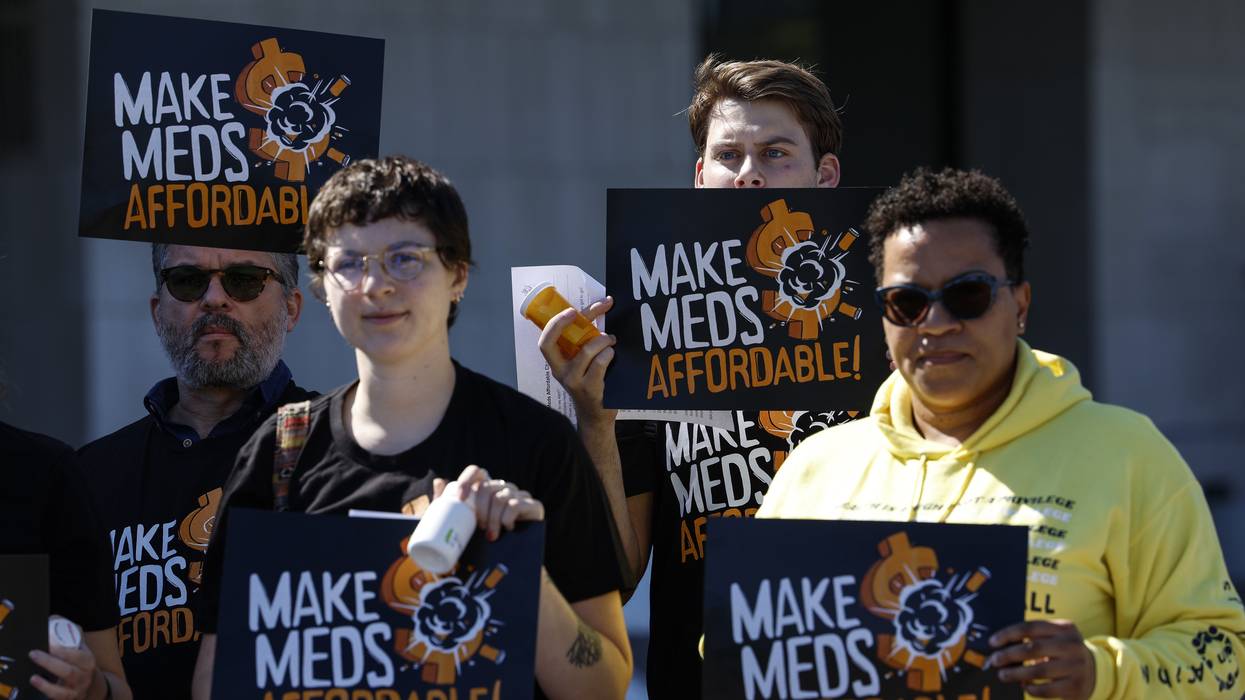Federal Judge Tosses Big Pharma Lawsuit Against Medicare Drug Price Negotiations
"Big PhRMA is so desperate to stop the Biden administration from lowering drug costs for seniors that they’re clogging the judicial system with spam lawsuits even in courtrooms they have no jurisdiction in."
A federal judge on Monday dismissed a lawsuit that the pharmaceutical industry's powerful trade group and allied organizations filed in an attempt to kill Medicare's new drug price negotiation program, which threatens manufacturers' virtually unrestrained power to drive up the prices of lifesaving medicines.
Judge David Alan Ezra of the U.S. District Court for the Western District of Texas tossed the lawsuit on procedural grounds, ruling that the National Infusion Center Association (NICA)—which does not manufacture or sell prescription drugs—lacked standing to sue.
Because NICA was the only plaintiff based in Texas, Ezra—a Reagan appointee—dismissed the lawsuit, which was joined by Pharmaceutical Research and Manufacturers of America (PhRMA) and the Global Colon Cancer Association. The coalition argued that the Medicare price negotiation program is unconstitutional, a claim that advocates have dismissed as cover for the industry's attempt to protect its profits.
A spokesperson for PhRMA, which spends tens of millions of dollars a year lobbying Congress, told Axios in a statement that the group is "disappointed" with the judge's decision and is weighing its next legal steps.
Tony Carrk, executive director of Accountable.US, said in response to Ezra's decision that "Big PhRMA is so desperate to stop the Biden administration from lowering drug costs for seniors that they're clogging the judicial system with spam lawsuits even in courtrooms they have no jurisdiction in."
"The big drug industry will say or do anything to strip away Medicare's new negotiation powers so that they can go back to business-as-usual price-gouging seniors on life-saving medicines," Carrk added.
The Lower Drug Prices Now campaign called on the "rest of the Big Pharma corporations suing Medicare" to stop fighting the program and "start negotiating."
The judge's ruling marks the second setback the pharmaceutical industry and its allies have faced in court since unleashing a barrage of lawsuits last year against the Medicare drug price negotiation program, which was launched under the Inflation Reduction Act. In late September, a federal judge allowed Medicare to continue implementing the program amid a legal challenge brought by the U.S. Chamber of Commerce and its affiliates.
Earlier this month, the Biden administration made its opening price offers to the manufacturers of 10 high-priced prescription drugs, including Pfizer, Merck, and Johnson & Johnson—each of which is suing over the Medicare program.
The companies now have less than a month to either accept the administration's offer or put forth a counter.
Xavier Becerra, secretary of the Health and Human Services Department, said Monday that the Texas judge's ruling "offers more reason for optimism that our work driving down the cost of prescription drugs will build."
"We will continue to implement the president's historic prescription drug price law, which is already delivering for the American people," said Becerra.


